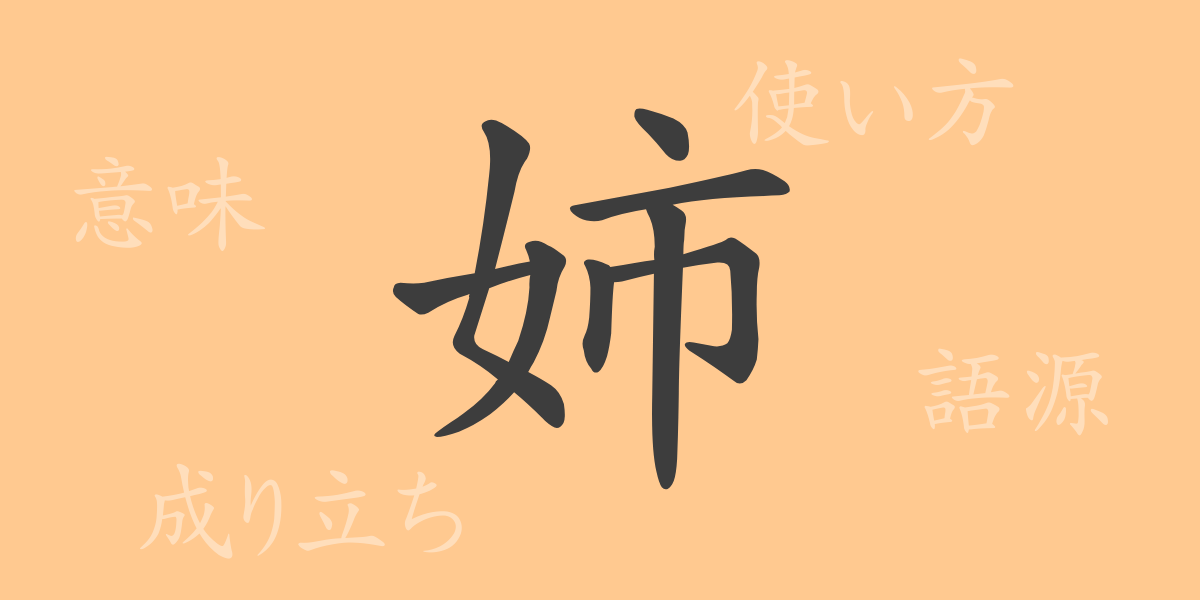The character “姉(あね)” in Japanese, used affectionately to refer to an older sister, carries deep cultural and historical significance beyond merely denoting a family member. In this article, we spotlight “姉(あね),” exploring its origins, meanings, usage, readings, and idiomatic expressions, as well as the cultural context that surrounds this commonly used kanji. By examining the role of the older sister within the family and its reflection in Japanese culture, we delve into the charm of this essential character.
Origins of 姉(あね)
The character “姉(あね)” originally signified a senior or elder female. It combines the radical for woman “女(おんな)” with “市(いち),” indicating sound. This composition reflects the ancient Chinese practice of respecting elder women within the family. In Japan, “姉(あね)” has been used since ancient times to denote the hierarchy among siblings, especially highlighting the importance of elder sisters.
Meanings and Usage of 姉(あね)
The kanji “姉(あね)” primarily refers to an older sister within a family. However, it also extends to denote respect for older female friends or close acquaintances. The term “姉さん(ねえさん)” is often used to address such women with affection and respect. This respectful usage is common in various social contexts, emphasizing the cultural importance of elder sisters.
Readings, Stroke Count, and Radical of 姉(あね)
The character “姉(あね)” is well-known in Japanese and follows specific rules for reading and writing:
- Readings: The on’yomi (音読み) reading is “シ(shi),” and the kun’yomi (訓読み) reading is “あね(ane).”
- Stroke count: “姉(あね)” consists of 8 strokes.
- Radical: The radical is “女(おんなへん),” representing “woman.”
Idioms, Phrases, and Proverbs Using 姉(あね)
There are numerous idioms, phrases, and proverbs in Japanese that include “姉(あね),” each carrying unique meanings and nuances:
- 姉妹(しまい): Refers to real sisters or very close female friends.
- 姉御肌(あねごはだ): Describes an elder woman who looks after and cares for younger individuals.
- 姉歯(あねは): Originally indicating an elder sister supporting her brother, metaphorically used to describe structural supports in buildings.
- 姉さん女房(あねさんにょうぼう): A term for a wife who is older than her husband.
Conclusion on 姉(あね)
The kanji “姉(あね)” goes beyond being a mere character; it symbolizes respect, affection, and familial bonds with older women. Its usage in everyday conversation reflects Japanese values and culture. Through this exploration, we hope you gain a deeper understanding of the multifaceted meanings of “姉(あね)” and appreciate the richness of the Japanese language.

























